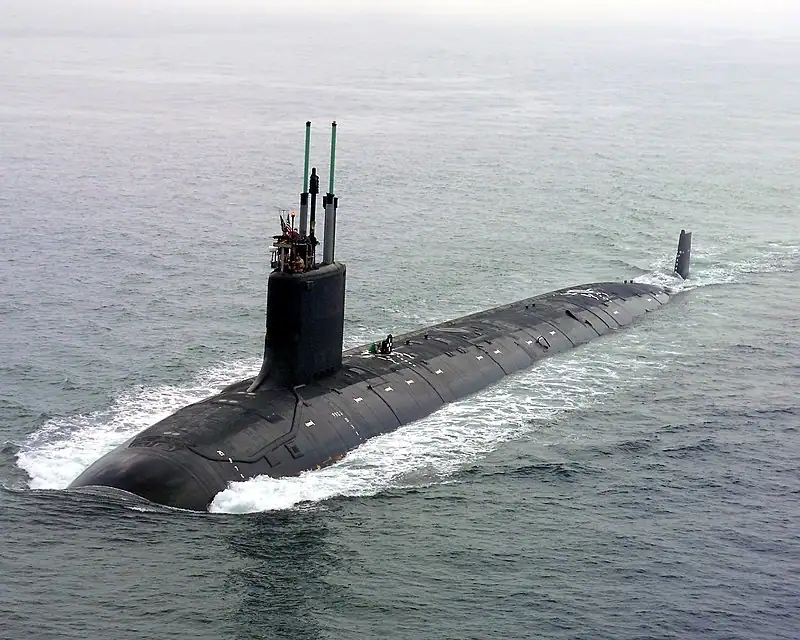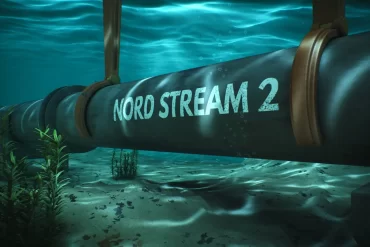On March 13, 2023, the US, UK, and Australia announced a $368 billion deal to buy nuclear submarines, which will be the largest defense contract in the history of Australia. The deal has received criticism, and some are concerned about nuclear proliferation issues. In this article, we will explore the details of the AUKUS submarines deal and its implications for the involved countries.

What is in the deal?
The agreement between the US, UK, and Australia commits Australia to buy nuclear-powered submarines, armed with conventional weapons, which will be delivered earliest in the 2040s. These submarines will be based on new nuclear reactor designs yet to be developed by the UK.
The US, on the other hand, will sell three Virginia-class submarines to Australia, starting from the 2030s, with the potential to sell up to two more if needed.
In total, Australia will purchase eight new nuclear submarines from the US, to be delivered from late 2040s to end of 2050s.
Implications of the AUKUS submarines deal for Australia
With the implementation of the deal, Australia will be the 7th country in the world to have nuclear submarines.
The deal has been criticized as it does not provide credible answers to Australia’s security needs. Additionally, if the US and UK share submarine nuclear reactor technology with Australia, it would be a breach of the Nuclear Non-proliferation Treaty (NPT), to which Australia is a signatory as a non-nuclear power. Even supplying such nuclear reactors by the US and UK would also breach the NPT.
Why Australia Reneged on Contract with France
Australia broke its existing diesel-powered submarine deal with France, which was to buy 12 submarines at a cost of $67 billion. The move has been questioned, and many have wondered what Australia gains and what the US gains by annoying France, one of its close NATO allies.
The US considers the core countries of the NATO alliance to be US-UK-Canada for the Atlantic and US-UK-Australia for the Indo-Pacific. That is why the US was willing to offend France to broker a deal with Australia.
Implications for the US
The AUKUS submarines deal between the US, UK, and Australia has far-reaching implications for the US. As per the deal, the US will provide Australia with eight nuclear submarines over the next 25-40 years, in exchange for access to Australia as a base for supporting its naval fleet, airforce, and even its soldiers.
One of the major benefits of this deal for the US is that it will have increased access to the Indo-Pacific region, which has emerged as a critical strategic theater in recent years. By establishing a rotational presence of one UK Astute class submarine and up to four US Virginia class submarines at HMAS Stirling near Perth, Western Australia, as early as 2027, the US will be able to project its military power more effectively in the region.
Furthermore, the deal will help the US to counter China’s growing influence in the region, which has been a major concern for the US and its allies. The use of Australia as a base will enable the US to conduct more frequent and sustained military operations in the region, thereby enhancing its ability to deter any potential threat from China.
The deal also has economic implications for the US, as it will create significant opportunities for American defense contractors.
How does China see the AUKUS submarines deal?
As expected, China has reacted strongly to the recent nuclear submarine deal between the US, UK, and Australia.
In a press conference on March 14, 2023, the Chinese Foreign Ministry Spokesman Wang Wenbin said. ” [The] Nuclear submarine cooperation between the US, the UK and Australia involves the transfer of large amounts of weapons-grade highly enriched uranium from nuclear weapon states to a non-nuclear weapon state, which poses a serious nuclear proliferation risk and violates the purpose and object of the NPT.”
China’s state-run media has also been highly critical of the deal. The Global Times, a Chinese state-run newspaper, called the deal a “blow to the already fragile international nuclear non-proliferation mechanism” and warned that it could drag the Asia-Pacific region into a new cold war.







